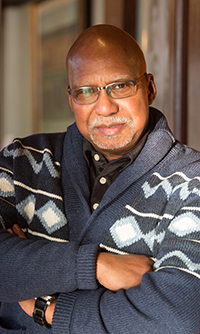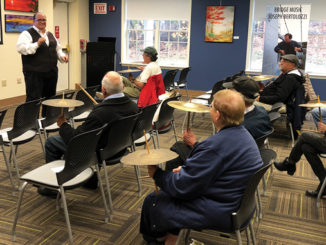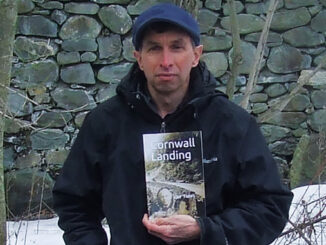
Considered the single worst act of racial violence in United States history, on May 31 and June 1, 1921, a mob of white residents destroyed homes and businesses in the Greenwood District of Tulsa, OK. The incident, known as the Black Wall Street Massacre, left about 10,000 black people homeless and caused over $2 million in property damage. To shed some light on the scarcely taught incident, Earl Miller will give a virtual lecture titled “History Matters: Tulsa 1921,” at 6:30 p.m. on July 6 through the Cornwall Public Library.
Miller is currently a New Windsor resident and grew up as a child of the CIvil Rights movement in Atlanta. His grandfather was a Baptist minister who pastored one of the churches destroyed during the Black Wall Street Massacre. He relocated the family to Georgia.
“I don’t think he was actually there for the massacre, but what I understand from my research, there was an intentional effort to limit the sharing of the event with the broader world,” Miller said. “There were efforts either to change the narrative or to kill the story. But there were members of the Black Wall Street community who took the story to other African American communities across the country. One of the major places of communicating the story were churches that served as the hub of African American communities.”
As pastor of the Ebenezer Baptist Church in Atlanta, Miller’s grandfather helped spread the word about the tragedy. He believes the attempt to cover-up the details of the incident is the reason why it was rarely mentioned in history classes and why many didn’t know it had occurred until they heard about the centennial anniversary.
Growing up, Miller believed his grandfather was in Tulsa doing work with the Native American community, as a minister. He recalls his mother mentioning on a few occasions, playing with Native American children as a little girl. It wasn’t until Miller was speaking with a college friend did he first hear about Black Wall Street and the fact his grandfather probably lived in Greenwood. From there, Miller began researching to learn more about the conflict.
Years later, Miller was invited to speak at Rockland County Community College. Home to the Holocaust Museum & Center for Tolerance and Education, the college held an annual commemoration of “Kristallnacht,” also known as The Night of Broken Glass, considered the beginning of the Holocaust. At the time, Miller said he wasn’t sure what he was going to speak about, but then he recalled, during his research, the parallels between Black Wall Street and the Holocaust. Miller said the riot’s success inspired many other race riots, lynchings, and unjust incarcerations throughout the United States. It was these parallels that inspired Miller to research the subject more and later speak on the topic.
“The title of my presentation is ‘History Matters.’ “We tend to think of history as the past and therefore very little relevance to the present, but the truth of the matter is, in spite of the advancements and the change realized through technological advancement, culturally, socially and any other way, the past in many ways frames the future. If we look forward with an awareness of the past, I think we’ll be able to maximize our potential and the opportunities held by the future.”
During Miller’s presentation next week, he will tell the story of the massacre, providing background and more details about what happened. He will also focus on the aftermath and the rebuilding efforts, as well as provide additional resources for others to learn more.
“My real intention is to not only tell the story but encourage others to learn more. I will provide resources and make them available if people want to continue to research on their own.”
Registration is open and can be done through the library’s online calendar. A Zoom link will be provided the day of the lecture.



